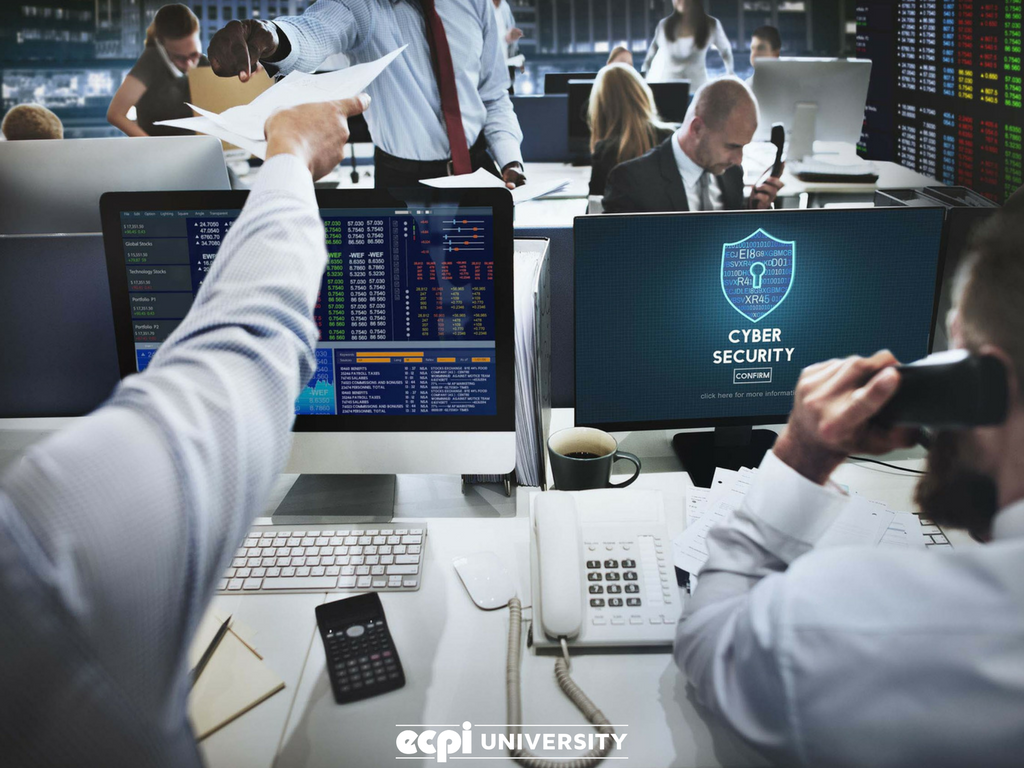Getting a Cybersecurity Job: What are Employers Looking For?
The world of cyberspace is a battleground where organizations are constantly being kicked in the information system by malicious hackers who steal information, post unwanted content on company websites, and cause temporary or even permanent damage. Global airlines, national health care organizations and many more entities are subjected to massive cyberattacks. It is unusual for a week to go by without reading about a hacking incident on the scale of the worldwide Delta Air Lines computer outage of 2016.
Companies are responding to the ever-present threat of a cyber attack by hiring information security analysts who plan and perform measures aimed at protecting an organization's computer systems and networks. Employers like to hire analysts with extensive knowledge in the area of cybersecurity. Other important components of a strong candidate are usually hands-on experience, certifications in specialized areas of cybersecurity, and a college degree in the field.
Hands-On Experience
You might wonder how you can get hands-on experience in the world of computers without first having a college degree. But there are many entry-level jobs and externship opportunities to give you some experience in the field before you’re ready for a job like a cybersecurity analyst. Working at a technical support help desk might not be glamorous, but it will teach you common problems users have, how bugs get into systems, and some of the various tricks phising tactics hackers might use to convince your company’s employees to reveal sensitive information.
Externships are another great way to boost your resume while still in school. Although you’re not paid, you’re able to work in a place where you can learn new skills and apply what you’ve been learning in class directly to a work environment. This can also help you network with those who run the IT department. It’s not uncommon for externships to turn into career opportunities.
Cybersecurity Certifications
There are many different kinds of cyberattacks, and as such, many different kind of cybersecurity methods. If you want to specialize in one, it’s a great idea to get a certification that shows your expertise in that particular kind of cybersecurity. This also shows employers that your skills have be validated by a third party and you can competently do the work on your resume.
Your instructors can help advise you which certification to take when and how to study for it. You could, for example, start off with a general certification such as the CompTIA Security+ certification. Later in your career, you could obtain the Licensed Penetration Tester (LPT) certification. Which is considered a master certification.
College Degree in a Related Cybersecurity Field
Because cybersecurity is so complex and always changing, employers want to make sure you know what you’re doing and know where to get help if you need it. Simply learning on your own through YouTube videos is not going to cut it. A college degree is mandatory for a great deal of cybersecurity jobs.
But not any degree will do. A degree in computer science and information science or a similar field is needed to have both the knowhow and the experience to be eligible for a job like this. A degree in cybersecurity itself is a great way to show employers that your education was specific to the field and your future career.
Soft Skills You’ll Need
When it comes to working with a team of IT professionals to keep a business and its customers safe from hackers, an individual has to have strong soft skills. Here are just a few that will come in handy as a cybersecurity analyst.
- Writing Skills. If there’s been a breech in the system, you might need to write a highly technical note to the next shift so they know how to monitor it. You might also need to write to the other company employees, including some who are not very tech savvy, about how another breech can be avoided.
- Interpersonal Skills. Getting along with a variety of personalities can be difficult, but management won’t be interested in hiring someone to work on a team who clearly shows throughout their work history that they can’t manage this successfully.
- Quick Thinking. When something goes wrong, you have to be able to react quickly and start trying to minimize damage to the system. Waiting for permission to do something within your job’s realm or consulting a library of cybersecurity books before acting, is going to slow down the process and put more of the system in danger.
Are you excited about the field of cybersecurity? Are you interested in earning a Bachelor of Science Degree in Computer and Information Science with a Major in Cyber and Network Security? ECPI University offers this comprehensive program to help you take the next step in your career path. For more information, contact a helpful admissions representative today.
It could be the Best Decision You Ever Make!
DISCLAIMER – ECPI University makes no claim, warranty, or guarantee as to actual employability or earning potential to current, past or future students or graduates of any educational program we offer. The ECPI University website is published for informational purposes only. Every effort is made to ensure the accuracy of information contained on the ECPI.edu domain; however, no warranty of accuracy is made. No contractual rights, either expressed or implied, are created by its content.
Gainful Employment Information – Cyber and Network Security - Bachelor’s
For more information about ECPI University or any of our programs click here: http://www.ecpi.edu/ or http://ow.ly/Ca1ya.




